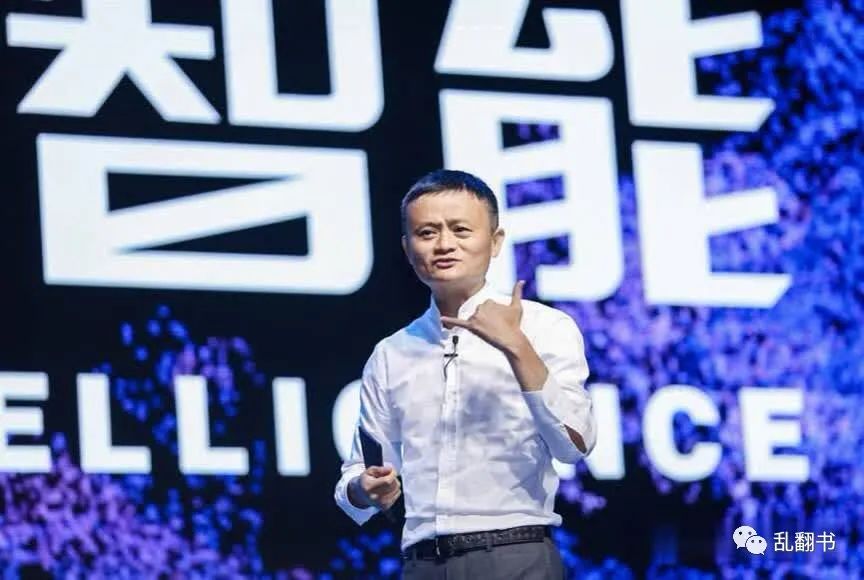What do the four keywords of infrastructure, openness, data, and ecosystem mean to Ali?
Editor’s note: This article is from the WeChat public account “Chaos Book” (ID: luanbooks) .
Author | Rao Tianlin
Producer | Pan Luan

In 2005, Alibaba raised $ 1 billion from Yahoo to acquire Yahoo China for a 40% stake. How does the costly Yahoo deal affect Ali?
In 2010, Ali changed his mission to “Promote a new commercial civilization of openness, transparency, sharing, and responsibility”, and then returned to “Let the world have no difficult business” two years later. What are the reasons for Ali’s abnormal adjustment of his mission and what are the consequences?
In fact, in Alibaba’s history, there have been at least four strategic transitions that affect the subsequent trend, and each time seems to show a corner to Ali in the future, and it will become a self-proven prophecy of this company many years later.
These four turns are:
-
In January 2002, the Changfu Palace Strategy Conference proposed “Meet, Work, Live at Alibaba” to guide Ali’s strategic thinking on “infrastructure”;
-
The Ningbo Strategy Conference in September 2007 proposed “building an open, collaborative, and prosperous e-commerce ecosystem”, and outlined the basic blueprint of Ali’s strategy for the next ten years;
-
In March 2010, the Organization Department Conference announced that Ali’s new vision is “the first platform for sharing data”, and Ali has since become a “data company”;
-
In June 2011, Yongfu Temple, announced that it would “remove one and three” of Taobao, and immediately began the intensive strategy and organizational adjustment of “not being an empire but becoming an ecosystem”.
This article uses Alibaba’s understanding of the four strategic keywords of “infrastructure”, “openness”, “data” and “ecosystem” to sort out the key twists in the company’s strategic evolution. An interpretation of the two books “Smart Business” and “Smart Strategy” by Chief of Staff Professor Zeng Ming.
< / p>
Metaphors: social systems, reservoirs, and power grids
In March 2002, Ali officially launched Chengxintong. Chengxintong is a product that helps merchants to conduct integrity certification, mainly through telephone sales. Porter Erisman (formerly Ali’s VP in charge of international public relations and marketing) said that Chengxintong was an important breakthrough for Ali. At that time, they began to realize that “the biggest obstacle to online transactions is the lack of trust. We have many in the world. Buyers and sellers, many of them members. If we can solve the trust problem, we will crack the password for e-commerce. “
Around that time, Ma Yun realized that compared with the United States, China’s entire society lacks the basic system including the integrity system, and the development of e-commerce must be based on these basic systems.
For example, Alipay, Alipay was the earliest “guaranteed transaction”, not payment. The function of solving convenient payment was called “one-click payment”.
Ali thought that China was not short of payments because of UnionPay. The “secured transaction” is to solve the problem of trust, that is, the buyer trusts Taobao to protect my payment before receiving the goods. At the same time, the seller should also trust Taobao, and the buyer can receive the payment as soon as the buyer confirms the arrival. Therefore, the slogan of Alipay in the early years was “because of trust, so simple.”
Because Alipay is different from Taobao’s marketplace, it is a lower-level, trust-based social system. Jack Ma decided to separate Alipay as early as the end of 2004. After all, Alipay almost fully supported Taobao for more than 2 years after its independent operation.
Not only Alipay, but also the business structure of the “Dharma Five Fingers” in 2007. Jack Ma later explained that “the construction of this system is extremely important for China’s e-commerce, and there are several key elements: first, there must be an integrity system , The second is a market system, the third is a search system, the fourth is a software system, and the fifth is a payment system. “
The last three correspond to Yahoo China, Ali Software, and Alipay. Later, Ali always built a system when he did things. In 2013, the Alipay “Moganshan” meeting established three major account systems for credit, funds, and carbon trading for users, and derived sesame credit, Yu’ebao, and Ant Forest. Shadow.
Alipay has submitted work reports to the central bank since 2005. In 2006, he actively asked ICBC to issue a “custodial report”. In 2009, Ma Yun even said that he could contribute Alipay to the country.